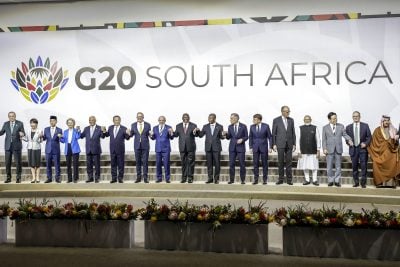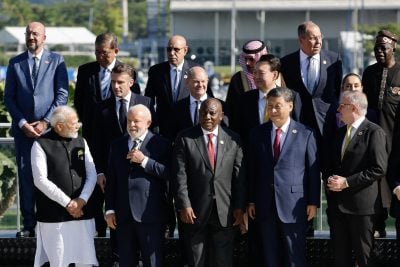There aren’t too many issues that unite South Africa’s radical Economic Freedom Fighters (EFF) and some of the richest companies in the United States. But there’s one thing on which EFF leader Julius Malema and Microsoft are in apparent agreement – that the Ugandan parliament’s bid to toughen the country’s already draconian anti-gay laws is a disgrace.
At the end of March, Open for Business, a coalition of major international companies promoting the economic and business case for global LGBTQ+ inclusion – which includes Microsoft, MasterCard, HSBC, Google and Facebook owner Meta – put out a strongly worded statement against Uganda’s Anti-Homosexuality Bill. The bill, which received approval from the parliament on 22 March, imposes death and life-imprisonment sentences for gay sex, up to 14 years for “attempted” homosexuality, and 20 years in jail for “recruitment, promotion and funding” of same-sex “activities” – among other penalties.
The coalition argued that the legislation, on which President Yoweri Museveni had not signed off at the time of writing, would have “a detrimental effect on employees and runs counter to the interests of businesses and economic growth in Uganda… and would make it a crime to pursue policies of diversity and inclusion in Uganda by making it illegal to provide information and support to LGBTQ+ employees.”
Further, they argued that it would compel companies to report those perceived to be LGBTQ+ to the authorities. For some of the businesses, the law was not merely a hypothetical risk – several of the coalition’s businesses have operations and employees in Uganda.
An unusual alliance
Meanwhile, draped in a rainbow flag and surrounded by his supporters, Julius Malema, one of Africa’s most prominent political radicals, marched to Uganda’s High Commission in Pretoria in early April. In a typically fiery address, Malema said that the MPs who passed the legislation should be ashamed of themselves.
“We are here to say to Uganda, as long as the LGBTQ+ community is not free in Uganda, we are not free… We cannot allow any regime in the world to kill people on the basis of identity… So we are saying to Museveni, leave the people the way they are.”
In addition, members of the European Parliament have urged the European Commission to “use all necessary diplomatic, legal and financial means to convince the president to not sign the law”, while the government’s own lawyers have raised doubts about the bill’s constitutionality.
A temporary reprieve
Whether it was the political, economic or moral pressure that eventually told, by late April Museveni had made the welcome decision not to sign the bill into law, at least temporarily. After a meeting between the president and ruling party MPs, the bill was returned to the parliament “with proposals for its improvement”, according to an official statement. Although the president said that he “totally agreed with the bill”, he asked lawmakers to consider “the issue of rehabilitation”.
Unfortunately, given the president’s apparent support for the general thrust of the legislation, the bill is likely to return in a form that is only marginally less draconian – perhaps only with new provisions for Ugandans who wish to “reject” their homosexuality under the government’s intolerable pressure.
Activists are under no illusions that the climb-down is a permanent reprieve for the besieged gay community. But in whatever form the bill returns to the president’s desk, he should know that an unusual and powerful alliance of corporate and radical voices are again prepared to stand up and raise their voices for what is economically – and more important morally – right.
Want to continue reading? Subscribe today.
You've read all your free articles for this month! Subscribe now to enjoy full access to our content.
Digital Monthly
£8.00 / month
Receive full unlimited access to our articles, opinions, podcasts and more.
Digital Yearly
£70.00 / year
Our best value offer - save £26 and gain access to all of our digital content for an entire year!

 Sign in with Google
Sign in with Google 



